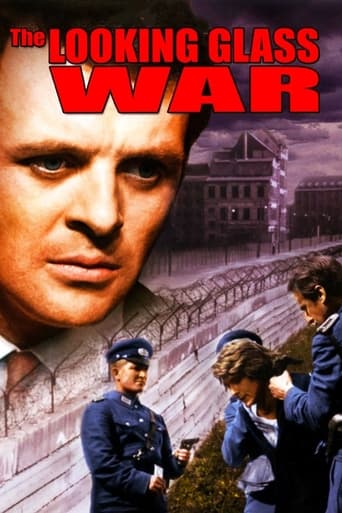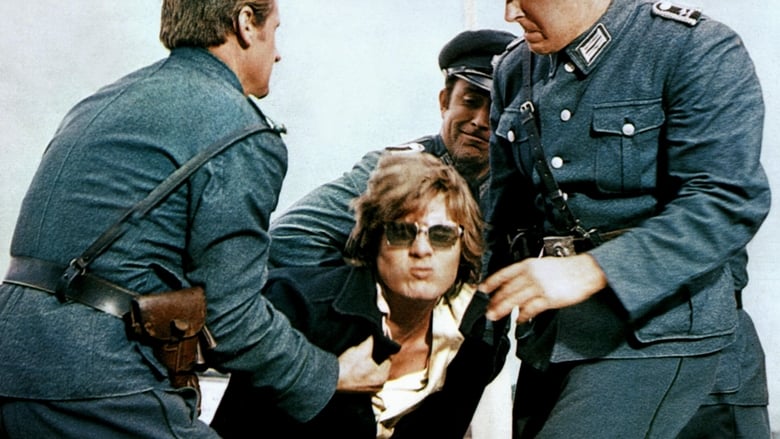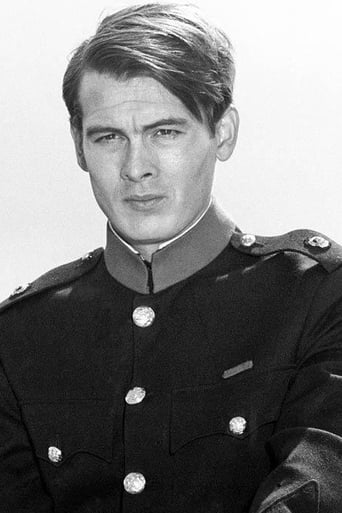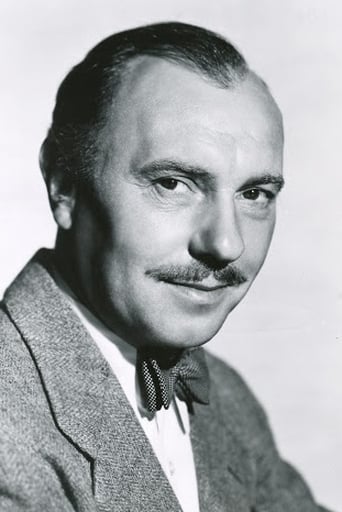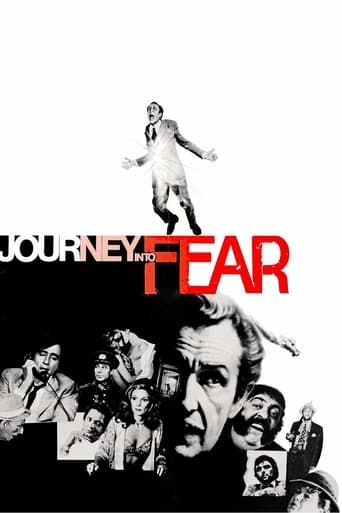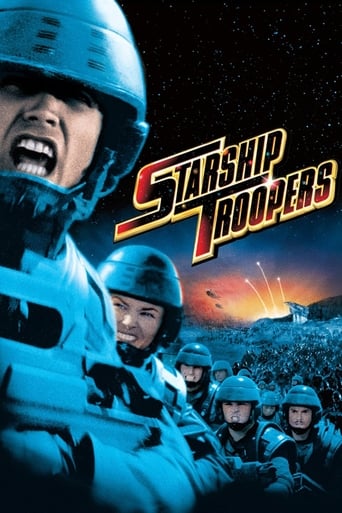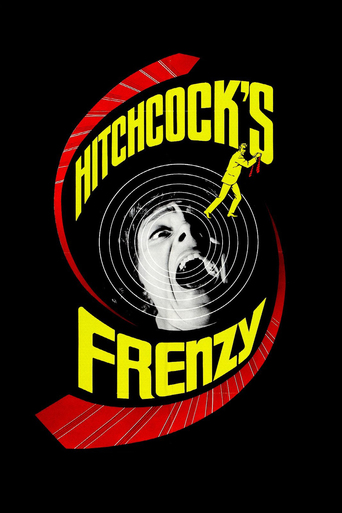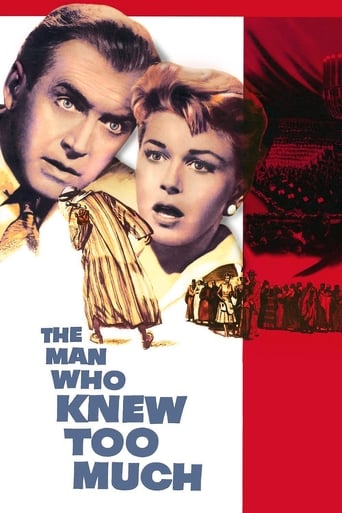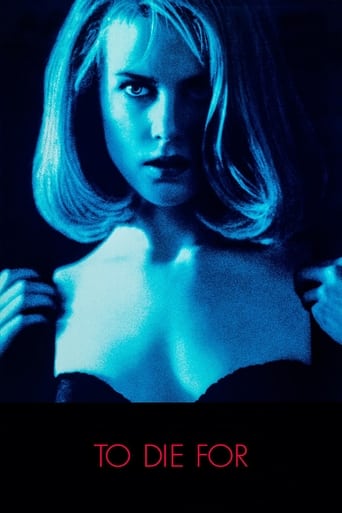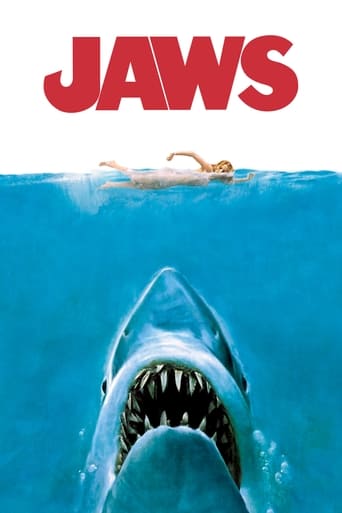The Looking Glass War (1970)
When a Polish sailor jumps ship in Britain, a couple of local intelligence operatives keep him under surveillance. Soon, he’s recruited to infiltrate a missile installation outside of East Berlin and bring back photos of the new rockets.
Watch Trailer
Cast


Similar titles
Reviews
the audience applauded
Best movie ever!
Fun premise, good actors, bad writing. This film seemed to have potential at the beginning but it quickly devolves into a trite action film. Ultimately it's very boring.
There's no way I can possibly love it entirely but I just think its ridiculously bad, but enjoyable at the same time.
The book is about shades of gray, about lost childhood, about impotent British institutions, about deception, loneliness, love, frailty and betrayal. It is about harking back to World War Two and old men looking in the mirror at themselves 20 years earlier. Or through the looking glass where everything verges on madness. The movie fails on every count. Cold and wet East Germany is dressed up as sunny California and the desperate, ill-judged and futile attempts of the spy, a complicated, working-class Pole, and his feeble, old handlers, are presented as some sort of hippie road trip for a James Dean look-alike. If ever a movie needed to stick to the text and, like "The Spy Who Came in from the Cold", use the starkest and bleakest cinematography, this was it.
During the Cold War, the British Intelligence receives a blurred photograph from East Germany taken from Hamburg and Director LeClerc (Ralph Richardson) believes that they are missiles. Their agent Taylor King (Timothy West), who receives a film that might clarify the detail from a pilot in Finland, is found dead on the road and the police believe that he was accidentally killed in a hit-and-run. LeClerc meets the Polish defector Fred Leiser (Christopher Jones), who jumped overboard from a ship expecting to have asylum and stay with his British girlfriend (Susan George) that is pregnant, and decides to recruit him to cross the border and spy the Eat German facility to check the missiles. In return, he would have salary, insurance and political asylum. Leiser is trained by the agent and family man John Avery (Anthony Hopkins) and soon he finds that his girlfriend has had an abortion. When Leiser crosses the border, he stumbles with the local Anna (Pia Degermark) and they stay together in the beginning of a dangerous journey where he is just a pawn in a war game."The Looking Glass War" is a dated thriller with a disappointing story. The characters are poorly developed and it is hard to understand the motivation of Leiser in his assignment after discovering that his girlfriend had forced an abortion. He is neither British nor an idealistic man to risk his life in a suicidal mission. Actually it is difficult to understand who he is since he is capable to kill two men in cold blood, slap the face of his girlfriend and let Anna with him knowing that his mission is compromised. The betrayal of LeClerc is the great plot point in the story but also difficult to understand why he plots all operation apparently to justify his agency and get rid off a defector. In the end, there is no consequence receiving or not the message from Leiser. My vote is six.Title (Brazil): Not Available
The Cold War era was highly resourceful with fictional (sometimes real) material, books and movies on espionage, ranging from cheap or fun entertainment to complicated and intricate plots full of suspense. John Le Carré is a master of the latter, at least when it comes to writing novels, and usually they turn into great movies, let us not forget the recent "Tinker Tailor Soldier Spy", not only a resurrection of the genre but it also was a complete modernization in style, treatment and editing without losing the looks and the good old charm of the 1960's and 1970's productions (and I can't wait for Alfredson/Oldman re-team in "Smiley's People", though they're jumping my favorite from Karla Trilogy "The Honorable Schoolboy" because it's just too long and too complex to be filmed, and not even BBC produced it as a miniseries during the Alec Guinness era as Smiley). So, "The Looking Glass War" broke my heart because it's unlike anything made Le Carré; first time director Frank Pierson didn't make a good adaptation over with an oversimplification of what could be a good story if elements were preserved and I couldn't care for the characters, too simple and badly written.And they couldn't get a more clichéd story: the British intelligence discovers that the Soviet Union is relocating some missiles, and in order to ruin their plans the command decide to send a spy from one German to another to mess with everything. The chosen one is the mysterious Leiser (Christopher Jones, dubbed here by another actor, who sounds exactly like James Dean), not a traditional secret agent, he's simply a dangerous German type they got out of prison. In trade for his cooperation, he's gonna be able help his pregnant girlfriend, now protect the MI6, Circus or whatever. Lieser's protégé, trainer and mentor in this mission is John Avery (Anthony Hopkins, the best thing in this movie), a man who is fully committed with his job and tasks, eventually sacrificing his quiet family life. After some strangeness between both men, they finally agree with each other and now Avery might be the only person capable of protecting Lieser if anything goes wrong. And off the young man goes to Germany in risky situations.What bothered me wasn't the lack of surprises due to its awfully clichéd proposition and engineering of situations; the problem lies in the characters, completely one dimensional, unlikeable and lacking in real reasoning for their motivations or they're reduced to one basic premise - to defeat the Soviet villains; Lieser, the anti-hero is just a hard-faced killing machine who doesn't generate any kind of sympathy from the audience. It's really difficult to understand why he's going to this suicide mission - the reason I wrote above isn't one of them as evidenced when he slaps his girlfriend during a simple conversation. Worst of all, he has zero charisma, his thick accent complicates things even more, only saves that the man is a real hunky. Though I haven't read the novel, I know that veteran spy George Smiley (Le Carré's most famous creation) is in it, very briefly. I don't know how important he is in the story but we could use his brilliancy and wisdom in this movie, he's always interesting despite the melancholia and his whispered speech manner. But then again, nothing could have saved this movie: the pace is wrong; the foggy and mysterious sceneries from classics like "The Man Who Came In From the Cold" are changed to colorful prairies and beaches, exuberant but very misplaced; and here's a story about almost nothing. In the end, it's all about betrayal and getting rid off an unpleasant person to a dead mission. So what? There's no resonance in that, there's no profoundity in that. It's useless. It feels like Mr. Pierson wanted to give us an ordinary and poor view to the meticulous and intriguing world of Le Carré. Result: weak movie with enjoyable parts. 5/10
'The Looking Glass War' is the most wistful member of LeCarre''s gritty spy genre that I'm aware of. Unlike the spies in most other stories, spies who are professionals, jaded by years of lies and deception, the main character in LGW is simply a young man, a Pole who has jumped ship, who allows himself to be recruited by the British because it gives him a chance to stay in England where he has a pregnant girlfriend. His motives, while not entirely chivalric, are honest. This is in stark contrast to the convoluted game that swirls around him. In 'The Spy Who Came in From the Cold', we learn that Control has marked the innocent Leamus from the beginning for sacrifice. But in 'Looking Glass War' none of the characters seems in control. They believe they are caught up in a perilous deluge, compelled to do whatever they can to keep themselves and their nation from being drowned.The juxtaposition of innocence, beauty, and youth against anxiety, iciness, and sacrifice throughout the film does not act to declare the future dead, as Orwell seems to do in his '1984', but to offer some hope that, despite ideological machinations, there still exist exuberance and room for dreams. To quote the Who, 'the kids are alright.'

